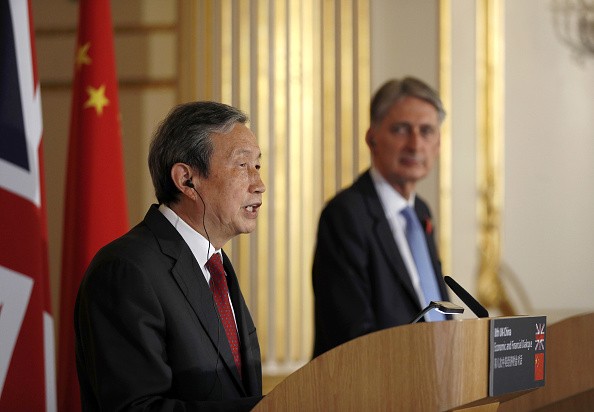The glow of the "golden era" or special relationship between China and Britain was said to be fading but the relationship between the two countries continues with new collaboration in joint ventures and financial partnerships.
The Financial Times reported that the signs of that era are slowly wearing off with the exit of George Osborne, Britain's former chancellor, who promoted Britain as China's foremost friend in the West and also promised to open U.K.'s nuclear sector to China.
According to the report, Osborne and Treasury minister Jim O'Neill have spent years enticing China and their departure from service had taken away from the British government two of its most eager and knowledgeable people on China affairs.
The report however, said that only the rhetoric of the "era" was present but the enthusiasm for the new epoch is missing.
This was despite a press conference held in London last week where the new chancellor, Philip Hammond met with Ma Kai, China's vice-premier, and a list of joint ventures, including new collaborations between the financial centers of London and Shanghai, were rolled off.
The report added that the mood also changed after Theresa May, the new prime minister, ordered a review of China's involvement in the Hinkley Point nuclear project. China was also upset by the new security measures introduced on Chinese investments.
Lord Mandelson, the former Labour business secretary, said that the relationship between the two countries "hit a bump in the road but had stabilized" over the Hinkley project, although Chinese investment was eventually allowed to proceed on the project.
"It may no longer be the same love affair as under [David] Cameron and Osborne but relations are workmanlike and we have a lot to offer each other," Mandelson was quoted as saying.
In addition, the replacement of Lou Jiwei, the Chinese finance minister seen as "worldly and innovative" by U.K. ministers and regarded as a reformer in Beijing, has contributed to this mood.
But although the mood has changed, the bilateral ties, particularly in financial services, are in placed as indicated by the latest U.K.-China economic dialogue at Lancaster House in London, where Hammond pledged to provide market access and close collaboration with China. This includes a new negotiation to link the Shanghai and London stock exchanges and further enhance capital markets.
On the other hand, China agreed to work towards allowing foreigners to own life insurance firms in mainland China. It also promised to boost regulatory cooperation and increase market access for fintech companies from both countries.
Several Chinese companies will also open offices in Britain, which include China Life, the country's largest life insurer, and the Shanghai Clearing House.
Ma said that China desires "a fair and just system for companies gaining access to each other's markets" and claimed the China-U.K. relations were at "a historical starting point."
On the issue of steel dumping, Hammond said that there was "still a problem" despite China "significantly reducing its overall steel output."
Lord O'Neill, the former Goldman Sachs chief economist who resigned as a Treasury minister in September, said that he supports government efforts to enhance economic ties with China.
"I think it's very important to maintain the 'golden relationship,'" the former minister said. "In a post-Brexit world it is even more important."



























